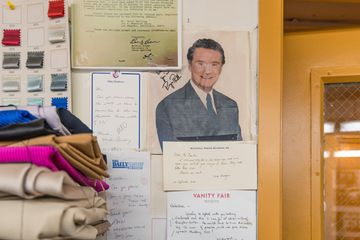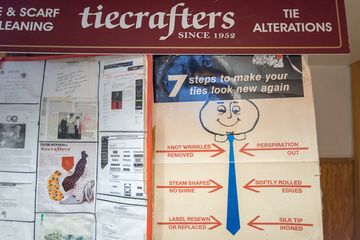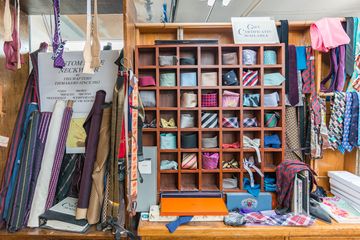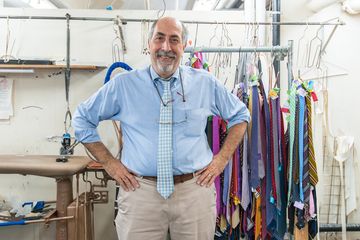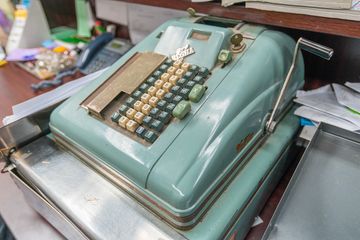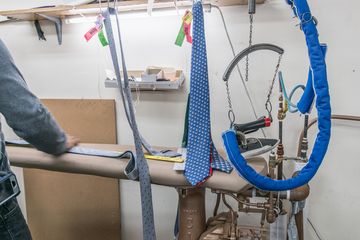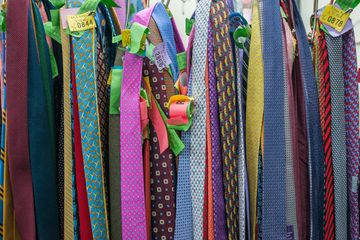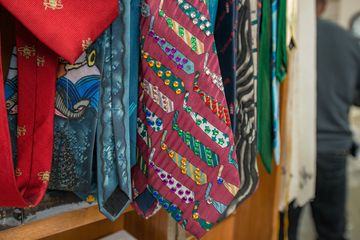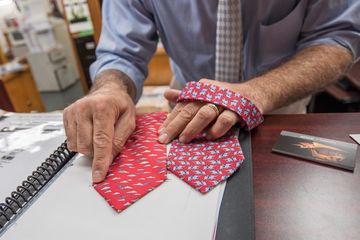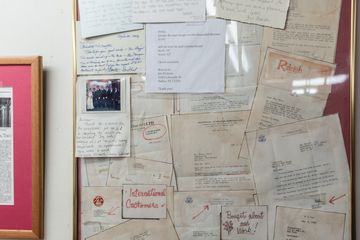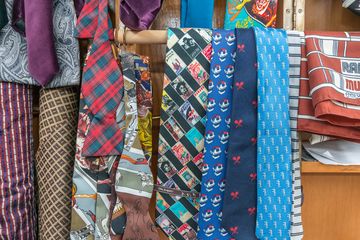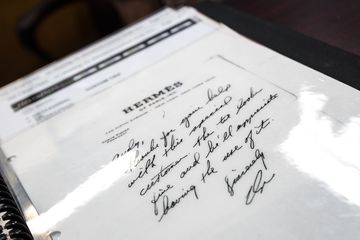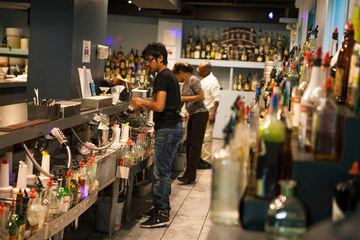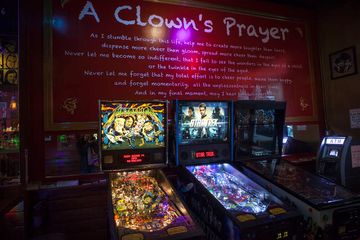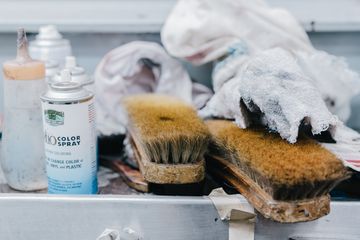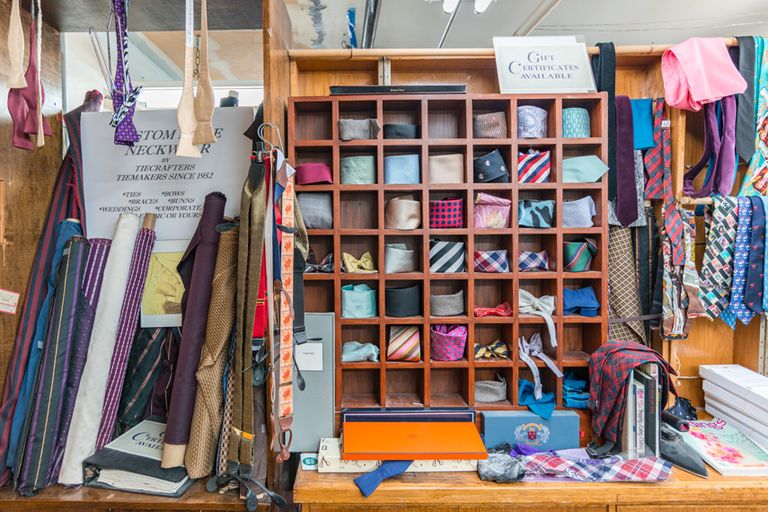
Before having any idea who I was and why I was stopping by, Andy Tarshis greeted me with a giant smile and a warm hello. I immediately realized that this colorful workshop in the basement of West 29th Street, was going to be one of the best kept secrets on the side streets of Manhattan. Tiecrafters, which has been in business over sixty years, is the quintessential hidden gem.
Tiecrafters performs many different services, all centered solely on ties. They clean ties, tailor ties, and create custom ties. Andy says that these days, a lot of his business is narrowing ties, as fashions are evolving from wider to skinny styles. “Fat ties now look like grandpa’s ties,” Andy quipped. No problem for Andy and his team, as they are easily able to alter this garment to fit changing trends. While I assumed that all the ties that came through Tiecrafters were high end, Andy assured me that that is not always the case. Though a fair number of pieces from Hermes and Ferragamo have passed through his doors, young professionals, who often do not have much money to spend on ties, will bring Andy their favorite accessories to mend or clean rather than buy a new one. Though Andy has many men from Wall Street drop in, as well as numerous celebrities (there are several framed photos on the wall), I could tell from just a few minutes of speaking to him that Andy treats each of his customers and their ties with the same level of respect and attention.
Andy was working at Bloomingdale’s while in his twenties when he spotted an ad in the paper that said, “Owner looking to semi-retire from a service business.” Having no idea what the business was, Andy found that his interest was piqued, and thought it would be a wonderful thing to be a business-owner at such a young age. He bought the business in 1980 and has since become the master of everything having to do with neckwear. Andy explained that the business used to be on ground level a few blocks away until the late nineties. Now, he said, “Its not as critical to have a storefront,” since he has many loyal customers and because over half of his business is shipped to him.
I was amazed when Andy took me to the back of his workshop where he showed me his equipment, much of which is not even made anymore. His faithful ironing board, which has a bungee cord attached to the iron in order to take stress off the arm of the operator, is made by Cissell, a company that has gone out of business. When I inquired about some of the ties hanging throughout the workshop, Andy indicated that they are custom made by Tiecrafters. Many of them were from schools and corporations that wanted their logo put on the ties. He even opened a box while we were there that had fifty ties from a university that wanted them refurbished to then share with their staff.
Andy laughed as he pointed to one of the ties that he made for the Viagra product launch in 1998. It was covered in little blue pills. “I had no idea what they were!” He also attracts clients from the theater world who need neckties that fit a specific time period. In addition, Andy is continuously contacted by a variety of men who are not of average size, such as very short and tall men, who need custom ties. I also thought it quite clever that Tiecrafters has created a strong wedding business, matching groomsmen neckwear to bridesmaid dresses. “Not many other people do one-offs," Andy informed me. Another fun story involved the lion statues outside the New York Public Library: he was commissioned to make them giant, waterproof bow ties for a special event.
Andy taught me fascinating tidbits about ties, including the fact that the decorative fabric on the inside of the end of the tie only extends a few inches from the bottom, while showing me the soft inner lining of the tie. He demonstrated how ties with frayed bottoms can be cut and re-sewn to eliminate the damage. I learned that the edges of ties should be rounded instead of pressed flat, and that when they are cleaned, ties often need to be opened up, reshaped, and then sewn back together. I now understood why many men did not entrust their neckwear to general cleaners. Andy’s knowledge seemed bottomless, and so I was not surprised when he shared that The Daily Show had chosen him to be a member of a humorous panel of professionals to judge presidential candidate’s ties.
When I asked Andy what thrills him the most, he immediately responded by stating, "I am still in business." He pointed out an ad for Tiecrafters framed on the wall from a 1956 edition of The New Yorker. As for his own ties, Andy treats them with as much care and seriousness as those of his customers. “I’m superstitious on ties,” he told me, after our enlightening, lively, and informative talk. “Because of this interview, I’ll wear this tie tomorrow!”
